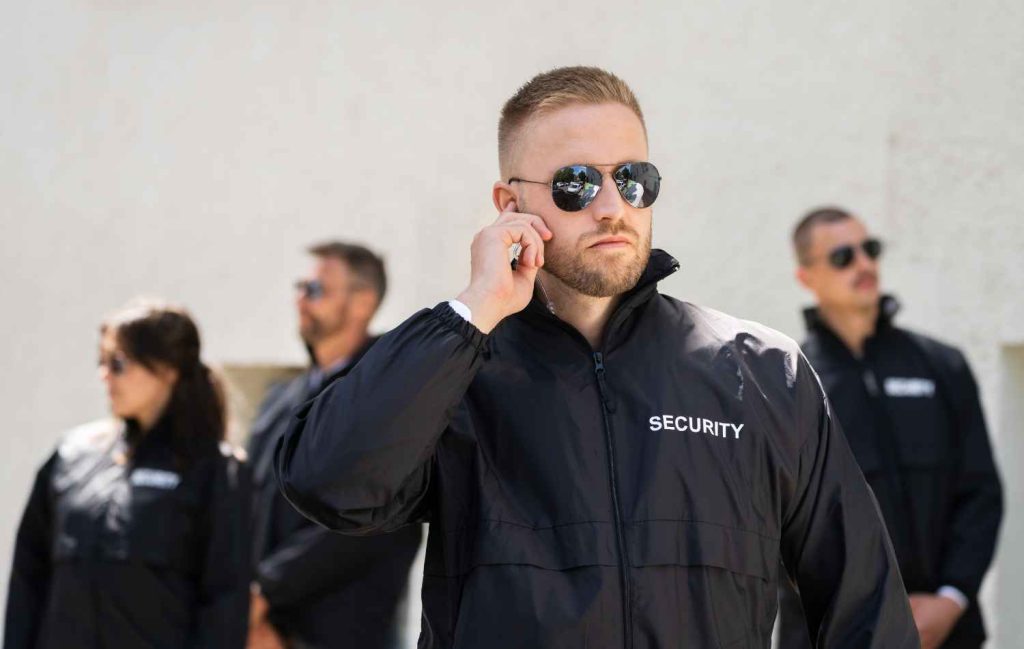
In a world where security threats are constantly evolving, the role of undercover security officers has never been more crucial. Unlike the traditional image of uniformed guards, these skilled professionals seamlessly blend into their surroundings, offering a discreet yet powerful layer of protection. Their ability to operate unnoticed makes them invaluable in diverse environments, from bustling retail spaces to high-profile events.
I've seen firsthand how undercover security personnel can transform the safety landscape. Trained in risk assessment and surveillance, they effectively deter theft, prevent loss, and manage crowds without drawing attention. Their presence ensures that potential threats are identified and neutralized swiftly and efficiently.
Whether it's safeguarding a corporate setting or ensuring the safety of a special event, these covert operatives work in harmony with visible security staff to create a comprehensive security strategy. Their unique skills and adaptability make them a vital component in today's security solutions, providing peace of mind in an unpredictable world.
Understanding Undercover Security
Undercover security involves the strategic use of covert operatives to protect individuals, organizations, and events without revealing their presence. These professionals, often referred to as plainclothes security agents, expertly blend into the environment to identify potential threats and gather intelligence. By operating discreetly, they effectively prevent crimes before they occur and enforce laws without disrupting the normal flow of activity.
Two primary types of undercover operations exist: Plainclothes surveillance and deep undercover missions. In plainclothes surveillance, officers maintain their true identities but remain unnoticed by the public while observing suspicious activities. This approach is crucial in environments with heightened threat levels, as operatives can act swiftly and decisively. In contrast, deep undercover missions involve the complete transformation of an officer's identity, including false documentation and altered appearances. These missions require agents to infiltrate criminal organizations, gaining trust to gather vital information and disrupt illegal activities from within.
The role of undercover security extends beyond mere observation. By collaborating seamlessly with uniformed security personnel, these operatives ensure a layered and comprehensive security strategy. For instance, during large events, undercover agents can monitor crowds for unusual behavior or potential risks, allowing for rapid response and intervention. In retail environments, they serve as discreet observers aiding in loss prevention efforts. Additionally, undercover security agents perform security audits, assess potential hazards, and devise mitigation plans to enhance overall safety.
The demand for undercover security services continues to rise as individuals and organizations seek effective ways to safeguard their interests. This covert form of protection offers an unparalleled level of security, ensuring the safety of people and property while maintaining a low profile.
Differences Between Undercover and Uniformed Security
Undercover and uniformed security serve distinct roles essential for effective security management. Undercover security, with its unobtrusive nature, operates discreetly to catch criminals in the act while blending seamlessly into the environment. These professionals excel at surveillance and crime detection, offering a surprise element that prevents theft and ensures a calm atmosphere for patrons.
Uniformed security, in contrast, is readily identifiable and acts primarily as a deterrent. Their visible presence discourages criminal conduct and reassures visitors and employees by signaling authority. This type of security is effective for crowd control and managing visible threats, as their presence alone can mitigate potential issues.
Both undercover and uniformed security contribute to a comprehensive security strategy. While undercover operatives focus on intelligence gathering and discreet crime prevention, uniformed officers maintain order and provide an immediate response to open threats. When integrated, these security measures offer robust protection that balances discretion with authority.
Key Benefits of Undercover Security
Undercover security provides discreet and effective protection without attracting unwanted attention.
Discreet Surveillance
Blending seamlessly, undercover security guards wear everyday attire, making detection difficult. Their ability to monitor surroundings discreetly ensures accurate observation and allows identification of suspicious activities. The inconspicuous presence deters crime while maintaining a relaxed environment for customers and employees.
Enhanced Flexibility
Adaptable, undercover personnel operate across various settings. They play roles in retail environments by preventing theft and employee misconduct. Their collaboration with uniformed guards enhances crowd management and threat response in events like corporate functions and special gatherings. This versatility makes undercover security an essential component in comprehensive security strategies.
Application of Undercover Security
Undercover security refers to the deployment of discreet personnel to safeguard various environments by blending in with the public. It's an effective tool for mitigating risks without alerting potential threats.
Retail Settings
In retail environments, undercover security plays a vital role in theft prevention and employee accountability. Trained personnel work incognito among shoppers and staff to identify shoplifting and internal theft. Their presence deters organized retail crime, and they can also uncover employee misconduct like unauthorized discounts or mishandling merchandise.
Corporate Environments
In corporate settings, undercover security ensures a secure workplace by detecting potential internal and external threats. Operatives conduct risk assessments, identify security vulnerabilities, and create strategies to mitigate these risks. They collaborate with security teams to ensure comprehensive protection within the organization and conduct audits to enforce security measures.
Special Events
At special events, undercover security enhances overall safety and crowd management. Agents monitor attendees for suspicious activity while maintaining a low profile. By integrating with uniformed security, they provide seamless protection, ensuring swift responses to any potential threats without disrupting the event's atmosphere.
Choosing the Right Security Service
Selecting the appropriate security service is crucial for balancing effective protection and discretion. Both undercover security and uniformed guards offer unique benefits, so understanding their roles helps determine the best fit for specific needs.
Undercover security excels in scenarios where discreet monitoring is required. In environments like retail spaces, they offer significant advantages, as they blend in and identify potential threats without drawing attention. Their primary role focuses on loss prevention and intelligence gathering, making them ideal for low-profile situations where visible security might interfere with business operations or customer experience.
For instances requiring a visible deterrent, uniformed security guards play an essential role. Their presence alone can deter criminal activities, while they also assure visitors and employees of their safety. Uniformed guards excel in maintaining order and responding swiftly to open threats, making them suitable for facilities where the visibility of security staff is paramount.
Businesses should consider their specific security objectives before deciding which service aligns best with their needs. The nature of the environment and the desired level of visibility often dictate whether undercover security or uniformed guards are more effective. Together, these services can be integrated into a comprehensive security strategy, providing robust protection tailored to the unique demands of each setting.
Conclusion
Undercover security plays a pivotal role in modern security strategies by offering discreet and effective protection across various environments. These operatives seamlessly integrate with uniformed guards to create a balanced security approach that addresses both covert and overt threats. By blending into their surroundings, undercover agents can gather intelligence and prevent crimes without disrupting the environment. As the demand for sophisticated security solutions grows, incorporating undercover security into your strategy can enhance safety and provide peace of mind. Whether it's in retail, corporate, or event settings, the strategic use of undercover operatives ensures comprehensive protection tailored to specific needs.
Frequently Asked Questions
What roles do undercover security officers serve in?
Undercover security officers play crucial roles in surveillance, crime detection, risk assessment and crowd management without attracting attention. Their discreet presence allows them to identify potential threats, deter theft and improve overall security strategies in different ftdefense environments , such as retail areas and high-profile events.
How do undercover agents differ from uniformed security?
Undercover agents blend into their surroundings to discreetly monitor and gather intelligence, focusing on crime detection and prevention without being noticed. In contrast, uniformed security offers a visible deterrent, reassuring visitors and maintaining order while responding to open threats.
Why are undercover security officers important in retail settings?
In retail environments, undercover security officers are vital for theft prevention and ensuring employee accountability. By working covertly, they can identify shoplifting and internal misconduct without disrupting business operations, contributing to a secure and relaxed shopping environment.
Are undercover and uniformed security necessary for event safety?
Yes, both undercover and uniformed security are essential for comprehensive event safety. Undercover operatives discreetly monitor attendees, enhancing crowd management, while uniformed officers provide a visible presence to maintain order and respond to any open threats.
Can undercover security officers carry weapons?
The policy on carrying weapons varies depending on the organization and the environment in which the officers operate. Typically, undercover security personnel in environments like retail settings are unarmed to avoid potential liability issues.
